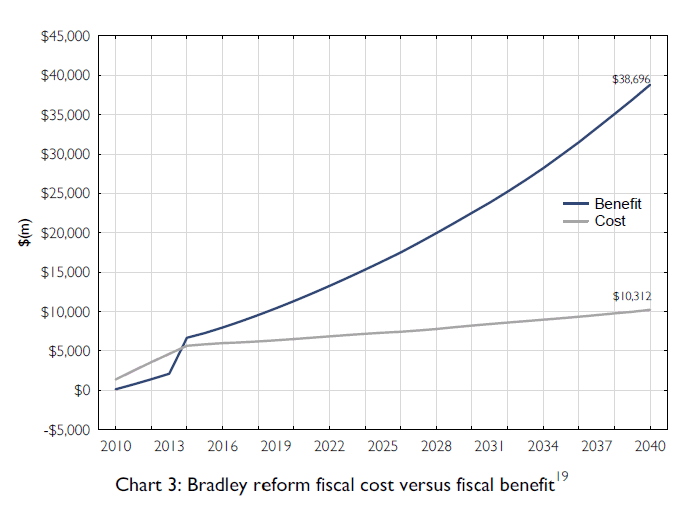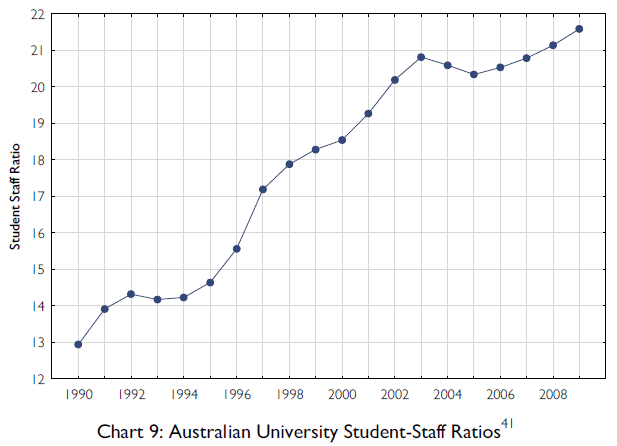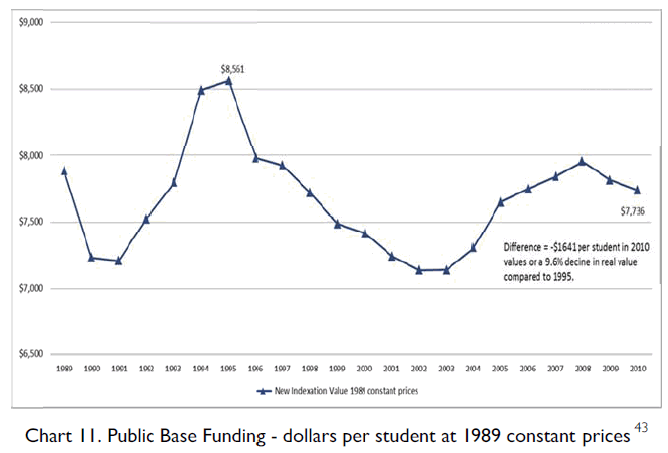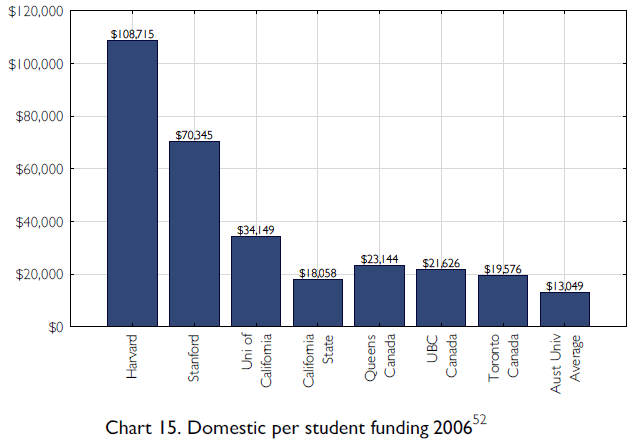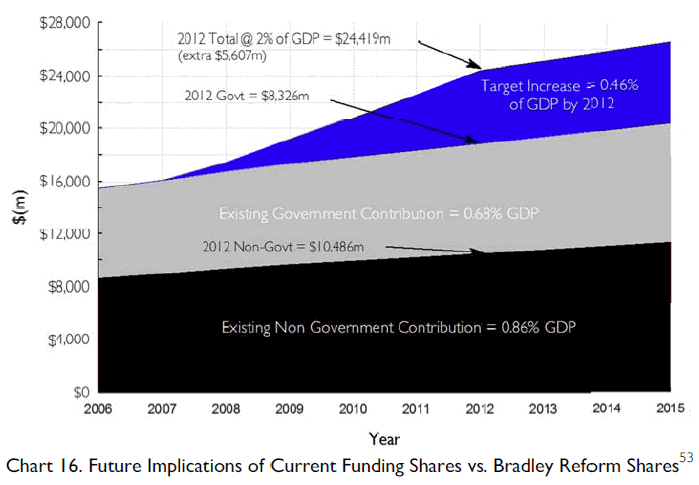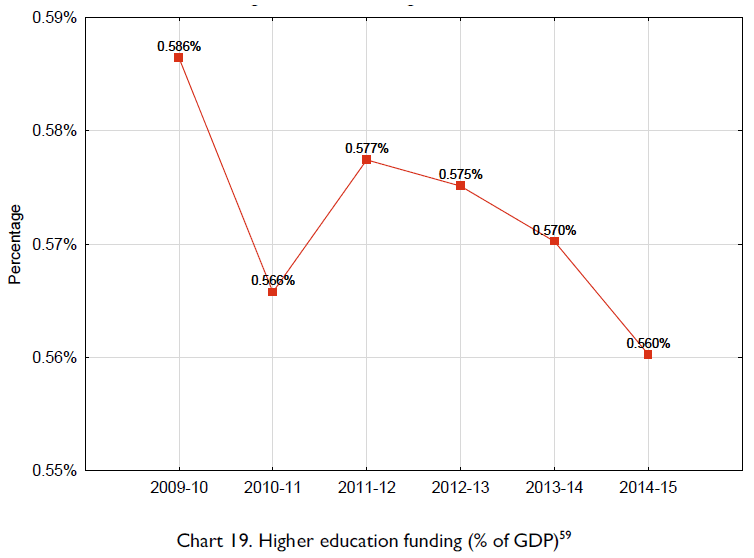|
News & Views item - September 2011 |
![]() Universities Australia Releases A Productive Country.
(September 5, 2011)
Universities Australia Releases A Productive Country.
(September 5, 2011)
Today Universities Australia released its 37-page report,
A Productive Country: The contribution of Australian universities to the
national productivity![]() .
.
Universities Australia Chief Executive Dr Glenn Withers writes in introducing the report:
Modelling for Universities Australia by KPMG Econtech estimates that this Bradley [higher education] reform scenario would add some 5.6% to national productivity by 2040 and some 6.4% to Australia's GDP. Other reform proposals ranging from tax reform and workplace reform through superannuation changes and free trade agreements to broadband and schools and health reform are valuable but each add less. It is time to build our national capability to compete and to work smarter through investing in the Australian people. Knowledge investment and infrastructure renewal can be the core of a new reform era for the twenty-first century.
Higher education also delivers on non-economic benefits in social, cultural, health and environmental fields, has the highest "value-add" in sustaining economic activity in Australia for any industry sector, avoids and offsets the dangers of the two speed economy by delivering benefits Australia wide, and repays its public funding many times over.
The report goes on to predict that higher education reform and resourcing would deliver a Commonwealth budget surplus of $325.5 billion better than the no-reform path in the period 2011-2040. And Dr Withers states that universities have: "[F]ully accepted [the obligation of increasing efficiency], have been amongst the best global performers in education, [and] all universities readily accept the need to do still more and to continuously improve... [Nevertheless] the reciprocal responsibility is that some increase in public per student taxpayer funding and in permitted student contribution amounts under HECS, of the order of 10% each, are needed to complete the delivery of the Bradley Review vision. This is because the report does show that undergraduate student places are substantially underfunded - in fact by as much as 33% on average. A suitable reform package is the key to overcoming this challenge."
Citing the report, the Minister for Tertiary Education, Senator Chris Evans, claimed the report "confirms that the Government's investment in higher education will continue to pay a productivity dividend in the years to come. Expanding the reach of Australia's higher education system is central to the Government's productivity agenda. This century, the Australian economy will increasingly need highly-skilled and creative workers with higher education qualifications. That's why we've invested so strongly in higher education and why we'll continue to do so."
However the review states: "the government's recent investments in higher education enables universities to 'tread water' but do not enable them to move forward even further. With reduced international student revenue growth and limits on fee flexibility, some negative trends will persist, including: restricted growth in research, lesser graduate attainment, reduced academic career incentives, deferral of investment in facilities and decreasing student engagement."
Below we reproduce several of the charts included in the report.
